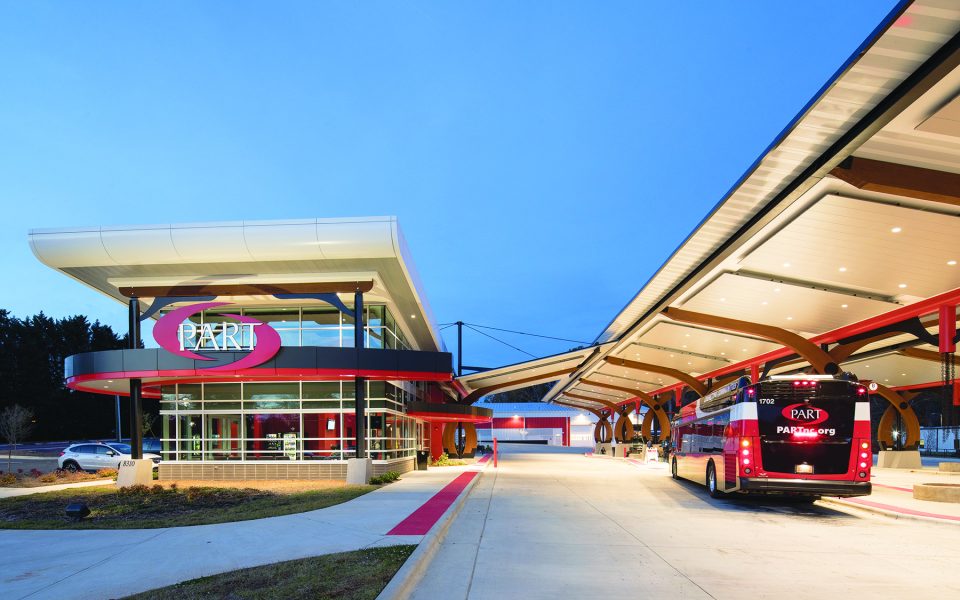Recent bus driver shortages interrupting our local public-school systems and rising gas prices bring an issue to the surface that those of us in Transportation Resources work hard to untangle. Why is a large segment of the population in our region not utilizing alternative modes of transportation?
When the bus driver shortage threatened to shut down Guilford County public schools, it was troubling to watch parents thrown into chaos, as were most of the student riders who were high school-aged young adults. Parents went on the news worried about their grown kids hopping on the city bus and shuttling across their hometown streets to get to school. Social media chatter was hot on the topic, and neighborhoods went on various message platforms talking about the havoc that was sure to come.
But students rode the city bus, and havoc never came. Various local news outlets reported that Guilford County School (GCS) and Greensboro Transit Authority (GTA) officials felt that everything went smoothly. Kevin Elwood with GTA issued this statement, “We recognize that there are perceptions out there about the safety of using public transportation, especially with children, but we emphasize the fact that we have professional drivers [and] we have cameras on the buses that record all the activities …” (wfmynews2).

Fast forward to May 2022, and gas prices reached record highs. It is no surprise that Americans are susceptible to the cost of oil. When it comes to getting around, the United States is a worldwide outlier. Decades of car-centric land-use decisions have created a landscape where owning a motor vehicle is almost required. As a result, “Americans currently consume roughly 20% of the world’s oil despite having less than 5% of the population” (The Philadelphia Inquirer, LLC).
With the idea that public transit is an easy, safe, and affordable option, we should rethink how to utilize alternative forms of transportation, especially in the Triad region, where an excellent system is already in place. Narrowing down our vast region to focus on Winston-Salem, High Point, Burlington, and Greensboro, there is already a seamless bus system working. Within each city, the agencies work together to offer standardized payment methods and service delivery and identify areas where partner consistency is beneficial to our riders. An excellent example is that each agency promotes biking as an option and has equipped their vehicles with the same standardized bike racks.
Unique to our region, Piedmont Authority for Regional Transportation (PART) connects member counties and cities so citizens can easily commute throughout our region utilizing public transportation. PART also offers a Vanpool service designed to help people in the Triad share their ride to work. It works through a lease that is split among the group members. The more people, the lower the cost. They offer 7 to 15 passenger vans to groups of 3 or more people on a month-to-month lease.
As an added option to encourage alternate means of mobility, PART manages 17strategically placed Park & Ride lots throughout our member counties. These offer free day parking to those sharing rides, accessing bus systems, vanpooling, or utilizing other modes of transportation. In addition, some of these Park & Ride lots offer electric vehicle charging stations for commuters.
And we can’t have this conversation without mentioning our fragile planet. Most citizens now see the sustainability of our natural environment as necessary. And the Triad can beam with environmentalist pride that our communities have positioned us with a comprehensive and valuable public transportation system. Now, all we need to do is utilize it! Expand it and enhance it! There is no better time than now to make our move!
Join the First Amendment Society, a membership that goes directly to funding TCB‘s newsroom.
We believe that reporting can save the world.
The TCB First Amendment Society recognizes the vital role of a free, unfettered press with a bundling of local experiences designed to build community, and unique engagements with our newsroom that will help you understand, and shape, local journalism’s critical role in uplifting the people in our cities.
All revenue goes directly into the newsroom as reporters’ salaries and freelance commissions.


Leave a Reply